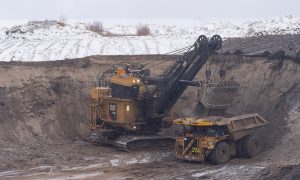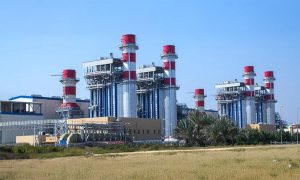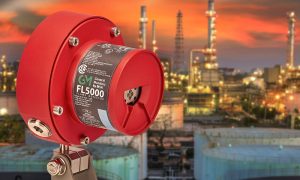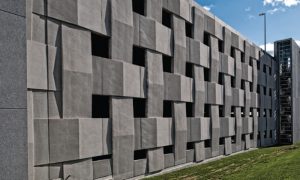Caterpillar has shipped an electric load-haul-dump (LHD) loader to a mine in Canada, where the first such proof-of-concept vehicle will be tested in active service.
The Underground Mining group within the equipment giant began the initial build and validation testing of the R1300G test unit in early 2017 at the Caterpillar Peoria Proving Grounds, which will continue now with moving muck in the Canadian mine. The LHD is an earth-moving equipment class designed for underground mining operations.
According to Cat, the test machine is a proof of concept for packaging and performance of a lithium-based energy storage solution the company plans to bring to the LHD market. The Cat R1300G does not represent a final design that will go to market, the company said in a statement, adding that it will launch after testing a full-fledged new product introduction programme that follows a more in-depth, rigorous design and validation process.
“Our customers are planning for deeper mines with very high ambient rock temperatures where ventilation costs are pivotal to making the mine viable,” said Jay Armburger, product manager with responsibility for underground technology. “One means of reducing ventilation demand is through electrification of the mining equipment.”
With over 250 patents in the electric drive and energy storage fields, and products like the D7E dozer, F-Series asphalt pavers, 794 AC and 795F AC large mining trucks, the recently introduced 988K XE wheel loader, Caterpillar says it has fully integrated electric drive train technology and components to bring to underground machines.
According to Cat, the programme to develop the R1300G started with a full production study and data analysis of the diesel machine in order to set a baseline. Once this was done, the transformation of the machine to a battery electric proof-of-concept began. The modifications included removing the engine, transmission and torque converter, then reconfiguring the engine end-frame to accommodate the battery boxes and electric motors. The result is a battery-electric powertrain driving a conventional and mechanical drivetrain with drive shafts and axles.
The R1300G proof-of-concept is an older machine without the benefit of efficient electro-hydraulics. As a result, said Cat, it will drive worst case scenario loads on the batteries. In the final production model, the design will enhance battery life through the use of load-sensing hydraulics driven by piston pumps, such as those on the new Cat R1700. The less refined proof-of-concept machine will yield solid understanding of heat generation and cooling needs, performance criteria, space claim and safety considerations in day-to-day operations.
Caterpillar said that it is getting feedback to help drive the programme forward with the help of several customers who have visited the proof-of-concept and operated it at the proving grounds. All customers agree that pursuing a system that is rechargeable on the machine is the right path forward, the company says. Recharging on the machine prevents the mine from incurring additional infrastructure costs or from having to manage or store replaceable battery packs. Instead, Caterpillar is focusing on fast charging of the batteries on the machine such that an operator can take a quick break and come back to a charged machine. In addition to developing the LHD itself, the programme has been prototyping a robust charging station, the technology behind which is unique to Caterpillar and uses Cat components and technology.
“We tried hard to break this machine and technology before sending it to Canada,” Armburger said. “With the results we’ve seen so far, we’re confident this R1300G proof-of-concept is giving us the answers we need to develop a machine that is safe and lives up to the Cat brand promise of durability and reliability.”


























